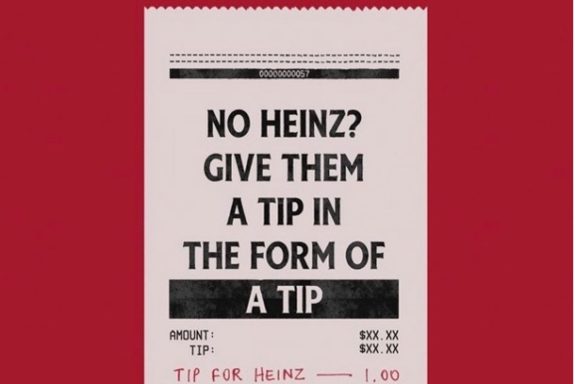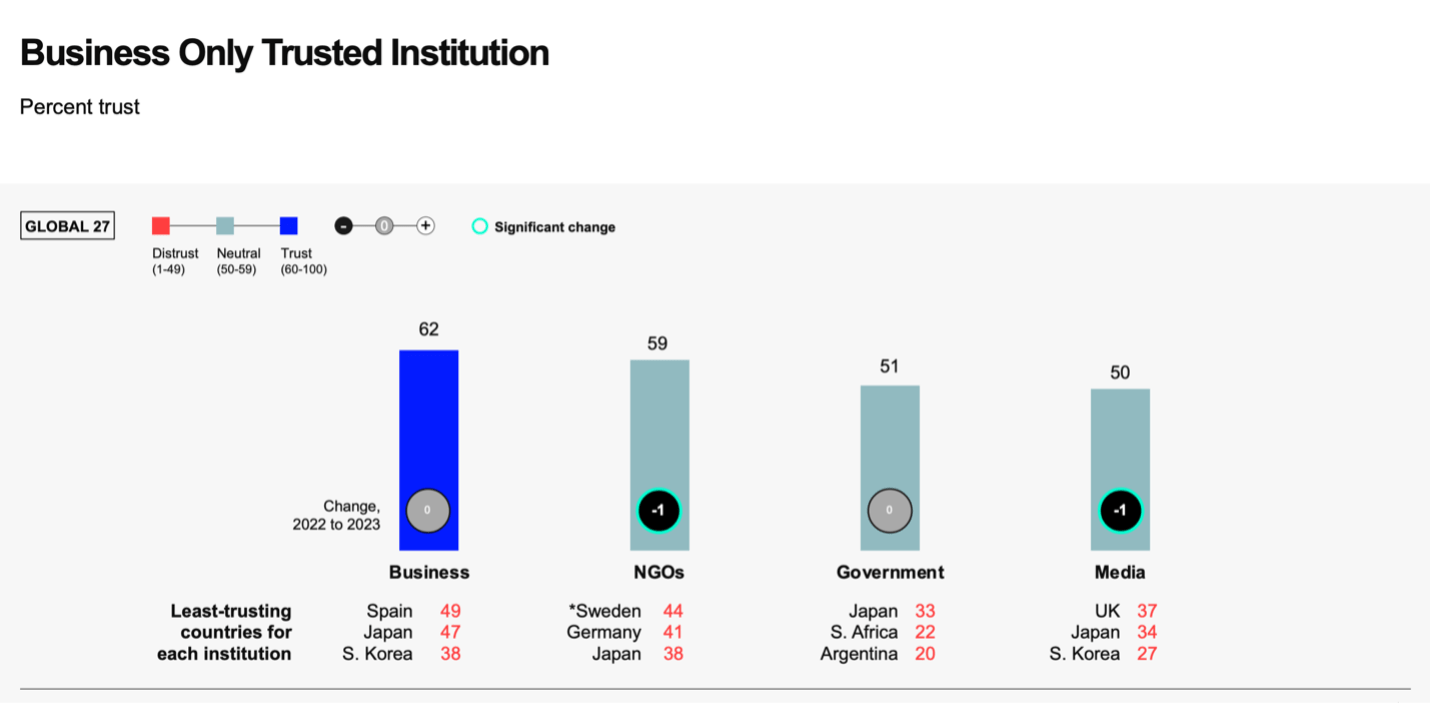2023 global challenges and trends
As communications practitioners, it’s our role to keep on top of evolving conversations, tactics, and tools, to help you navigate your communications practices.
Understanding public and media sentiment is key to leveraging the landscape to your advantage. At the start of every calendar year, we often take the opportunity to revisit and reset communications plans, harnessing our understanding of global shifts, challenges, and trends. This year we found a number of emerging trends.
Creative and challenging ways to engage your audience
At the end of 2022, Heinz ran a creative campaign in the US encouraging consumers to demand their local eateries serve Heinz as the tomato sauce of choice (or ‘ketchup’, if you are that kind of person). Heinz enthusiasts were asked to add a ‘tip for Heinz’ to the bill of any restaurant that didn’t stock the condiment brand and upload it to social media or the Heinz website for reimbursement.

This campaign turned a lot of heads for a few reasons, with some praising the unique approach. Others have called it out as a prime example of ‘astroturfing’.
Astroturfing, if you haven’t come across this term before, is a tactic used primarily to sway public opinion. It is riddled with controversy, particularly when used in politics to grow movements that appear to be naturally occurring but have in reality been set in motion by a company—and usually with great strategic thought behind the campaign and company resources allocated. While it may appear to be a grass-roots persuasive movement by the public, it is, in reality, a well-orchestrated strategy.
Perhaps the controversy stems from secrecy and falsehoods. By pretending the campaign has started from the bottom up and hiding the true level of involvement, companies benefit from the energizing ‘power of the people’.
But Heinz was never duplicitous in this way. Heinz’s ask of customers was transparent, clear, and a creative recruitment tactic that generated the spread of key messaging and product awareness in a fun and engaging way. A playful reminder of Heinz’s position in the market, targeted at consumers and restaurants alike.
What about the monetary incentive? Upload your photo and get paid by the company you are promoting–therefore being paid for your endorsement.
Incentives have been used in marketing and customer engagement since, effectively, the dawn of time. Heinz set this up perfectly. A win-win approach that rewarded customers for their loyalty and connected the brand to eateries serving a competitor’s product, priming them for offers to entice a supplier switch.
In contrast, McDonald’s Japan copped a lot of heat in 2008 for employing the ‘hire a crowd’ tactic. To announce a new menu item, the company paid 1,000 people to stand in line at one store to generate hype. Not expressly harmful, but deceitful–people were unhappy the record-breaking turn out was fake.
Consumer-led campaigns can tread a very thin line between creative outreach and astroturfing, yet it seems the line is drawn in artifice and deception. So long as your employees are not purporting as customers, or you aren’t hiding your funding of campaign activity, we challenge you to seek unique ways to engage your audiences.
Transparency and authenticity have emerged as priorities for businesses in recent times, as determined by the public. Keep your tactics fresh, be honest and clear in your approach, and seek new ways to package your brand to avoid staling but remain true to your brand essence.
Global shifts in trust
Transparency and authenticity have risen to the very top of consumer expectations of businesses and leaders in the last few years. After experiencing a myriad of crises, from finance to foot-traffic, businesses have had to adapt to a very turbulent landscape. As an institution, business has established itself as an unstoppable force.
According to the Edelman Trust Barometer 2023 business is the most trusted institution–globally. The private sector has been ranked and tested against government, media, and NGOs for years, and has grown in perceived levels of competence, credibility, and ethics.
Here are some interesting insights from the report:
- According to this year’s Trust findings, business remains the only trusted institution at 62 percent.
- Business is now the sole institution that respondents perceive as both ethical and competent following a 3-year rise in its ethics score.
- Since the 2020 COVID-19 pandemic, business has experienced a 20-point rise in ethics, outpacing NGOs, as well as government and media, which lag far behind business in both competence and ethics.
- Respondents do not see the government or media as reliable sources of trustworthy information, which has aided the ascent of business.

The Edelman report documents a significant decline in trust in government, in the last decade. Certainly, the tumultuous nature of the last few years has cast a shadow over the general public’s optimism for the future. Forty-eight percent of global respondents in the report believe that governments do not have a vision for the future they believe in.
In Australia, we may have less extreme polarisation recorded against other countries–but the lessons are just as important to us. The trust placed in workplaces, colleagues and CEOs is a telling tale of the great expectations of business, and how important it is to hone and refine your reputation both internally and externally.
When your company is viewed as reliable, transparent, and responsible, you are set apart from competitors. It becomes easier to attract customers, increase profits, and attract and retain talented staff.
For a business, enduring trust is an insurance policy in times of crisis and the best way to grow. Without trust, your credibility and reputation are shot.
We often map out reputational risk and management plans for our clients on a yearly basis–identifying and preparing for issues before they occur, and recommending ways to improve reputational standing.
A few things that contribute to the reputation of your businesses:
- Quality of products/services
- Online presence
- Transparent values, vision, and mission
- Corporate governance
- Financial performance
Consider your reputation one of your biggest assets. While certain elements will always be out of your control, a reputational risk or issues management strategy is one of the best investments you can make to insure your credibility. Whether you’re part of a multinational conglomerate or a sole operator–your credibility is currency and your reputation strategy is always worth revisiting on a regular basis.
Talent shortage/retention and recruitment
Reoccurring pain points for our clients and many Australian businesses involve recruitment and retention. A KPMG report released in January this year revealed that talent, acquisition and upskilling was the leading category in ‘what is keeping business leaders up at night’ heading into 2023.

Across seemingly every industry, businesses are plagued with high levels of turnover. The National Skills Commission 2022 Skills Priority List Key Finding Report showed that the number of jobs advertised in Australia spiked by 42 per cent in 2022 compared to 2021.
Finding and keeping staff has always been on the roster of challenges for businesses, exasperated by fewer international workers, students, and visa holders on our shores due to pandemic travel restrictions; escalated by skill shortages in critical industries like healthcare and tech; and intensified by the practice of ‘job-hopping’, with candidates trying their hand at a higher variety of industries and roles than ever before.
The KPMG Report summarises this issue as:
“Australia’s unemployment rate has fallen to 3.4, a level not seen in this country since the early 1970s when the economy was structurally different to today. Currently, there are as many people looking for work as there are jobs available. This suggests that Australia is at–or even beyond–full employment; and the remaining unemployed are largely those who do not have the skills and experience necessary to fill the jobs on offer.”
The challenge seemingly comes from the evolution of the employer-employee relationship. The solution is complex and likely unique to your business, and leaders across Australia are being encouraged to review which internal policies and practices need to be implemented, revised, or improved in order to keep their organisation attractive as a workplace of choice for both new and existing employees.
Where can you start?
- Your Employee Value Proposition (EVP) is a powerful tool for attracting and retaining top talent. Employee priorities have shifted, with flexibility now ranking first among Australian workers, followed by compensation, security, and work-life balance. Candidates are increasingly driven by value alignment and motivated by business practices such as flexible working, ESG, and CSR policies.
- Look internally to fill gaps. If you can’t find the talent in market, look inward to identify and train in-house talent to step into more senior roles. Promoting existing employees is also a low-cost and efficient way to fill roles–and your people know your business and systems, so induction is a less time-consuming process.
- Invest in and prioritise professional development opportunities. In a global report, upskilling was the fourth most important priority for employees. Businesses are constantly in need of new skills, and employees are looking for opportunities to grow and advance. for advancement. Offering an effective and measurable learning and development plan develops needed skills in the business and offers current staff a clear progression plan.
Your people are your greatest asset and biggest advocates. We assist clients in the development of their EVPs, internal marketing strategies, and overall communications plan to strengthen reputation and position in market.
Similarly, we act as an extension of your team when you have gaps in the workforce. Whether you need support across marketing, media relations, award writing, issues management or any other communications services, Elevate is flexible and available to bolster your team.
If anything in this article has resonated with you, or you would like to get in touch about our services, book a discovery call with us today.







